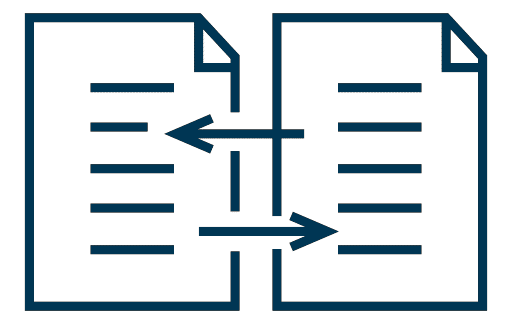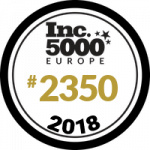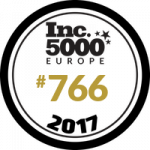Summary In the contemporary business environment, digital procurement is becoming increasingly popular and sought after by businesses around the world. The relationships …
Why does an inclusive project management plan matter?
What do diversity and equity in project management refer to?
Diversity in project management involves integrating individuals from diverse backgrounds, including traits such as race, ethnicity, gender, age, sexual orientation, abilities, and socio-economic status. This integration fosters a variety of viewpoints within a project team.
Equity in project administration focuses on ensuring fairness and impartiality in opportunities, resources, and treatment for every team member. It involves identifying and addressing systemic barriers that may hinder certain individuals or groups from fully participating and contributing to the success of a project.
Why do diversity and equity matter in project management?

Innovation and creativity
Incorporating varied perspectives, experiences, and ideas through diverse team composition promotes innovation and creativity. This integration of diverse viewpoints allows project teams to devise more robust solutions and approaches to intricate problems.

Improved decision-making
Inclusive project teams foster open dialogue and constructive contention, enhancing decision-making. Teams with varying backgrounds and project managers can render more discerning selections that encompass a broader scope of considerations and consequences.

Enhanced problem-solving
By prioritising equity, project managers can harness the team’s amalgamation of diverse skills and viewpoints to effectively tackle obstacles, ensuring that all members have equal chances to contribute towards goals and partake in problem-solving endeavours.

Better stakeholder engagement
A diverse team of individuals reflects the wider community and stakeholders participating in the project. This diversity cultivates credibility and participation amongst stakeholders, propelling robust connections and advocacy for project endeavours.

Mitigation of groupthink
Inclusive project practices prevent groupthink—the tendency for group members to conform to an opinion without critical evaluation, enabling teams to steer clear of pitfalls stemming from narrow-mindedness and facilitating the exploration of diverse perspectives.

Organisational values
Promoting diversity, equity, and inclusion (DEI) is held in high regard by numerous institutions. By integrating these principles into project management, the organisation is reinforcing its overarching vision and fostering a conducive corporate environment.
Delving deeper into diversity
Diversity extends beyond demographic characteristics to include perspectives, experiences, and backgrounds.
Cognitive diversity
The presence of cognitive diversity enhances project discussions and cultivates an array of innovative solutions through the utilisation of varying viewpoints, problem-solving techniques, and cognitive styles.
Experiential diversity
Incorporating project teams from different walks of life and professional backgrounds bestows invaluable insights and expertise, thereby fortifying their capacity to confront intricate obstacles in projects.
Cultural diversity
The influence of cultural diversity on communication styles, decision-making processes, and risk perceptions contributes significantly to a more thorough and complete comprehension of project dynamics.
How to implement proactive strategies to promote inclusivity in project management plans
Ensuring the implementation of proactive tactics to overcome obstacles and advance inclusivity within project management blueprints is fundamental in cultivating a climate of diversity, equity, and inclusion (DEI) among project teams.
Ensuring inclusive recruitment and hiring practices
Companies can boost their competitive edge by utilising inclusive hiring practices such as implementing blind recruitment techniques, diverse candidate sourcing methods, and creating inclusive job descriptions to draw in a diverse pool of candidates. In today’s fiercely competitive job market, companies must attract top talent from various backgrounds, making it imperative for them to adopt these inclusive hiring strategies.
Training for diversity and educating the team
All project team members must receive comprehensive diversity, equity, and inclusion training to raise their consciousness and cultivate empathy. Given the increased focus on social justice matters and demands for more diversity and inclusion in all fields, continual education and training are imperative. Investing in diversity training shows a company’s dedication to nurturing an inclusive organisational environment.
Cultivating inclusive leadership
It is crucial for project leaders to actively champion open communication, model exemplary behaviour, and actively seek diverse perspectives during decision-making processes. Effective leadership plays a vital role in guiding teams through project hurdles. Inclusive leaders who prioritise embracing diverse viewpoints and fostering a sense of belonging empower teams to tackle complexities with resilience and ingenuity.
Establishing supportive policies and practices
Companies must prioritise employee well-being and inclusivity by implementing policies that promote work-life balance, cater to diverse needs, and address unconscious bias in performance evaluations. 72% of employees value flexible work arrangements more than salary increases, highlighting the significance of supportive policies in talent retention as remote work becomes more prevalent and contracts for flexibility evolve.
Creating inclusive communication channels
Facilitate open means of communication that encourage input, engaged involvement, and acknowledgement of diverse contributions. With the ascent of remote work and dispersed project teams, proficient correspondence is crucial for preserving coherence and cooperation. Integrative channels of communication guarantee that every team member feels heard and esteemed, cultivating a feeling of inclusivity and emotional security.
Organisations can foster inclusive environments by proactively implementing strategies that mitigate impediments and promote diverse perspectives in project management plans. In today’s ever-evolving business landscape, where acquiring and retaining top talent is crucial for success, prioritising diversity, equity, and inclusion is not only a moral imperative but also a strategic necessity for sustained growth and viability.
Get in touch with a project management consultant for an inclusive project management plan
As companies recognise the importance of promoting diversity, equity, and inclusion (DEI) in their project management strategies, hiring a specialised project management consultant who excels in inclusivity can provide valuable skills and guidance in developing and implementing a comprehensive project management framework.
Invest in project management consulting to create an all-encompassing project management strategy that aligns with current economic and commercial conditions. Prioritising diversity, equity, and inclusion in project management methodologies allows companies to strengthen their competitive advantage, overcome potential challenges, and foster a more inclusive and sustainable outlook for the future.
Fighting the effects of inflation with sourcing and procurement consultants
Stay up-to-date on the latest insights on procurement, finance, and project management.
Summary Strategic procurement has become a necessity in today’s business world and organisations try to remain competitive. Having the right procurement strategies …
Summary The world of consulting has been undergoing a massive transformation and management consulting jobs are experiencing the impacts of these changes. …
FAQ
Inclusivity has a strong impact on project success. Inclusivity enhances creativity and problem-solving by bringing together varied viewpoints. This diversity of thought can lead to more innovative solutions, reducing blind spots and improving the overall quality and success of the project.
Yes, inclusivity fosters a sense of belonging and respect among internal stakeholders, which can improve stakeholder morale, engagement, and collaboration. Teams that feel valued and heard are more likely to be motivated, productive and committed to the project’s goals.
Inclusive project management has long-term benefits which include sustained team performance, ongoing innovation, improved stakeholder relationships, and a stronger reputation for the organisation as a leader in diversity and inclusion; this can also lead to better talent attraction and retention.














